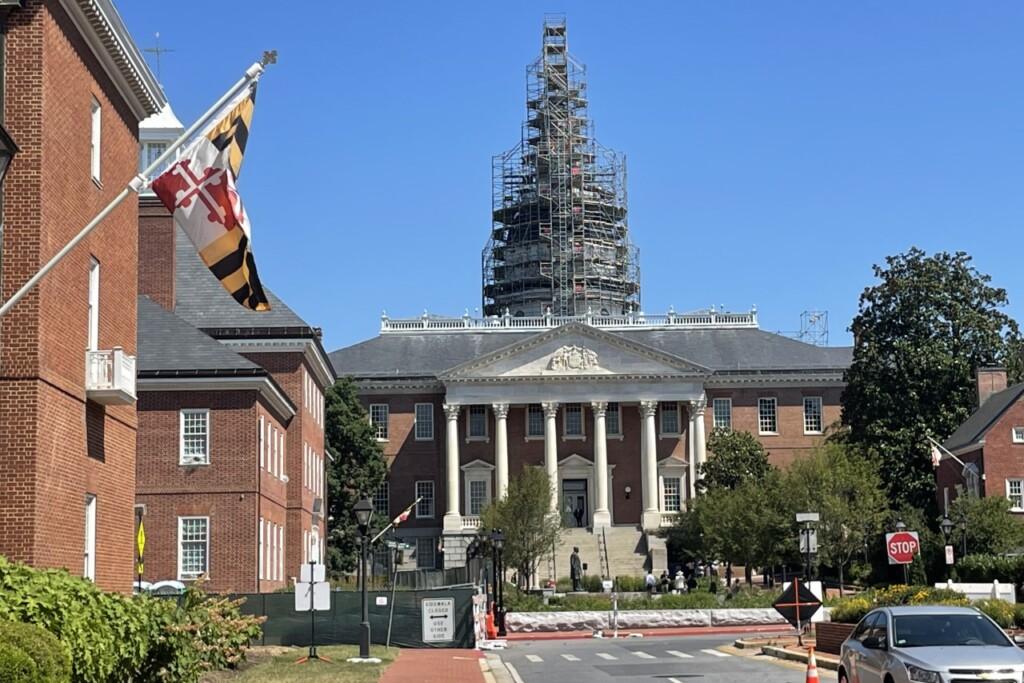The promise and potential pitfalls of the next four years in Annapolis were on dramatic display Thursday night, when six progressive members of the General Assembly spoke virtually to a left-wing advocacy group.
All six lawmakers — Sens. Jill Carter (D-Baltimore City) and Paul Pinsky (D-Prince George’s) and Dels. Gabriel Acevero (D-Montgomery), Julie Palakovich Carr (D-Montgomery), Sheila Ruth (D-Baltimore County) and Vaughn Stewart (D-Montgomery) — said they were excited and intrigued by the prospect of working with a Democratic governor for the first time after eight years of Republican Gov. Larry Hogan.
“It’s going to be a new day with a Democratic governor and a lot of good people coming up in the legislature,” said Ruth, who served as the moderator of the 75-minute online discussion, convened by the group Our Revolution Maryland.
Most of the lawmakers on the Zoom said they saw the agenda of Gov.-elect Wes Moore (D) largely aligning with their own.
But in their remarks to activists, the legislators differed about how much systemic change can be achieved in a State House that some described as continuing to be dominated by corporate interests, regardless of who is in charge. Several cautioned that the policy agenda for the next four years will be dictated largely by Moore, who laid out broad principles on the campaign trail but whose top priorities for the legislative session that begins on Jan. 11 — a week before he takes office — are largely unknown.
“I’m not sure there’s a clear progressive agenda that’s being advanced yet,” Pinsky said.
That didn’t stop the lawmakers themselves from describing the expansive progressive policy prescriptions they’ll be trying to advance over the next four years. Collectively, the priorities they discussed Thursday night included:
- Legislation to make Maryland’s tax code fairer and more progressive;
- Legislation to institute “combined reporting” for large corporations, which essentially treats a parent corporation and its subsidiaries as one entity for state income tax purposes;
- Measures to close loopholes in police accountability legislation that passed in 2021 and to strengthen laws that limit the number of juveniles who can be tried as adults in criminal cases;
- Bills to increase the availability of affordable housing in the state, including a measure that would make it easier for tenants to sue their landlords;
- Measures dealing with income, including a proposal to expedite the state’s adoption of a $15-an-hour minimum wage and a proposal for a guaranteed income for all Maryland residents;
- A proposal to bring a “single-payer” health care system to the state;
- Measures to ensure that the state’s newly-approved recreational cannabis industry is accessible to home-grown businesses owned by people of color and women;
- Political reforms, including public financing for legislative campaigns and special elections to fill vacancies in the General Assembly.
Palakovich Carr injected a note of caution about the fiscal realities.
“We’ve heard many great ideas,” she said. “Many of them hinge on the ability for the state to fund them.”
But Stewart — who was generally more optimistic than his colleagues on the virtual panel — noted that the state has a robust surplus at the moment and is generally in sound financial shape, in part because “we are the beneficiaries of a lot of federal cash right now.”
Stewart argued that Moore’s 32-point victory in the general election, along with Democratic gains in the legislature and in down-ballot races, suggests “we have a real mandate for bold action.”
But Carter said that even with Democratic supermajorities and a Democratic governor, progressive legislation can run aground. She said progressive lawmakers and their allies in the activist communities will have to put constant pressure on the legislature’s presiding officers and committee chairs to advance their agenda.
“Now that we have a Democratic governor, now that we have even bigger supermajorities in the Senate, in the House, what are we going to do with it?” Carter said. “Our responsibility is to hold our party accountable. It can be tough. It’s tough to challenge your friends, especially when those friends happen to be your leaders.”
The lawmakers on Thursday heard from activists who are trying to change state law to allow restaurant workers to earn a minimum of $15 an hour, so they are relying less on tips for wages. In 43 states, restaurant workers earn less than the minimum wage.
“The sub-minimum wage is a legacy of slavery,” said a restaurant worker who spoke, Dia King. “Maryland is one of 43 states that still permits the business model, built on slavery.”
Pinsky and Carter said they supported the concept — though Carter noted how difficult it was to pass a watered-down $15-an-hour minimum wage bill.
“I don’t want to be negative,” she said. “I just know what a heavy lift it is in this body to get any of this done.”
Pinsky said the idea of guaranteed wages for restaurant workers could gain momentum in Annapolis if activists push it hard.
“You have to create street heat…You have to mobilize from the ground up,” he said. “A great idea is a great idea, but it stays a great idea if you aren’t able to build support for it.”
That was the biggest takeaway the lawmakers offered the 70 or so activists who were listening in. The legislators urged the audience to follow state government closely and remain engaged.
“The majority of the issues that impact your life are taking place at the state level,” Acevero said.
By Josh Kurtz



Write a Letter to the Editor on this Article
We encourage readers to offer their point of view on this article by submitting the following form. Editing is sometimes necessary and is done at the discretion of the editorial staff.